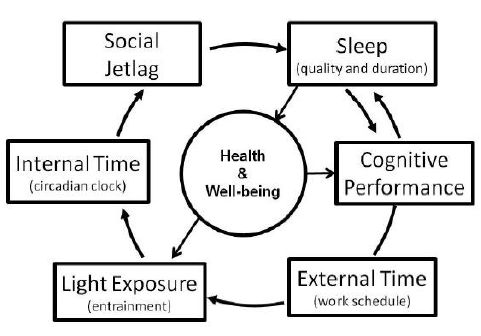VOLUME 5 NUMBER 1 (January to June 2012)

Philipp. Sci. Lett. 2012 5 (1) 017-029
available online: January 30, 2012
*Corresponding author
Email Address: jingky.lozano@dph.ox.ac.uk
Submitted: September 11, 2011
Revised: December 11, 2011
Accepted: December 19, 2011
REVIEW
Shift work research in the Philippines:
current state and future directions
by Jingky P. Lozano-Kühne7*, Maria Eliza R. Aguila1,Gayline F. Manalang, Jr.2, Richard Bryann Chua3, Roselyn S. Gabud5,Eduardo R. Mendoza4,6
1Department of Physical Therapy, College of Allied Medical Professions,
2Department of Environmental and Occupational Health, College of Public Health,
3Department of Physical Sciences and Mathematics, College of Arts and Sciences, University of the Philippines Manila
4Department of Computer Science, College of Engineering,
University of the Philippines Diliman
5Institute for Informatics,
6Faculty of Physics and Center for NanoScience,
Ludwig-Maximillians-Universität München
7Department of Public Health, University of Oxford
2Department of Environmental and Occupational Health, College of Public Health,
3Department of Physical Sciences and Mathematics, College of Arts and Sciences, University of the Philippines Manila
4Department of Computer Science, College of Engineering,
University of the Philippines Diliman
5Institute for Informatics,
6Faculty of Physics and Center for NanoScience,
Ludwig-Maximillians-Universität München
7Department of Public Health, University of Oxford
Shift work has been reported to affect the worker'shealth and well-being. However, the manyinteracting factors involved in shift work make itdifficult to understand the mechanism underlying itseffects. The currently rising demand for shiftworkers in the Philippine business process outsourcing (BPO)industry, particularly in the contact center sector, has spurredincreased interest in research on the effects of shift work onFilipino workers. The fact that shift work affects employees'health and well-being, and in turn affects economic productivity,gives enough reason for doing shift work studies. In this paper,we review research publications, project reports and theses(graduate and undergraduate) to determine the current state ofknowledge on shift work in the Philippines and to define futureresearch directions. Results of this review indicate that manyaspects of shift work have been explored in studies in thePhilippines, but there is still a big gap in knowledge that needs tobe addressed. While there are studies that investigated healtheffects, job satisfaction, job performance, lifestyle, riskbehaviors and other topics, the number of studies done in thecountry is still quite limited and the variables investigated do notallow comparison with situations in other countries. There is stilla need for more detailed studies to be able to provide empiricalevidence on shift work's effects on Filipino workers and to beable to make relevant interventions to improve the workers'health and well-being. In terms of research questions, there areno local studies that looked into chronic diseases such ascardiovascular diseases and cancer. There are also no publishedstudies yet that investigated the Filipino chronotype in relation toshift work. The chronotype characterizes how an individual'sinternal biological clock synchronizes to the external clock. Theimportance of chronotype in shift work research has been shownin studies in other countries. However, the chronotype variationamong Filipinos is not yet known. Other untapped topics on shiftwork research in the Philippines include light and shift work,speech ability and shift work, actual physical work load and timepressure, exposure to heat, dust or other hazards during shiftwork, dermatological problems related to shift work, genes andshift work, social and psychological aspects of shift work andlong term effects of shift work. We also included here aframework of research approaches on how to thoroughlyinvestigate the effects of shift work on the worker's health andwell-being. The framework was adopted from the Europeanproject consortium called ClockWORK which aimed to optimizethe individual's structure of work, free time and sleep. Anoffshoot of the ClockWORK project is the PhilSHIFT initiative.PhilSHIFT is an interdisciplinary group of researchers from theUniversity of the Philippines and the Ludwig-Maximilians-UniversitätMünchen studying chronotype variation amongFilipinos and shift work in the Philippines.
© 2026 SciEnggJ
Philippine-American Academy of Science and Engineering